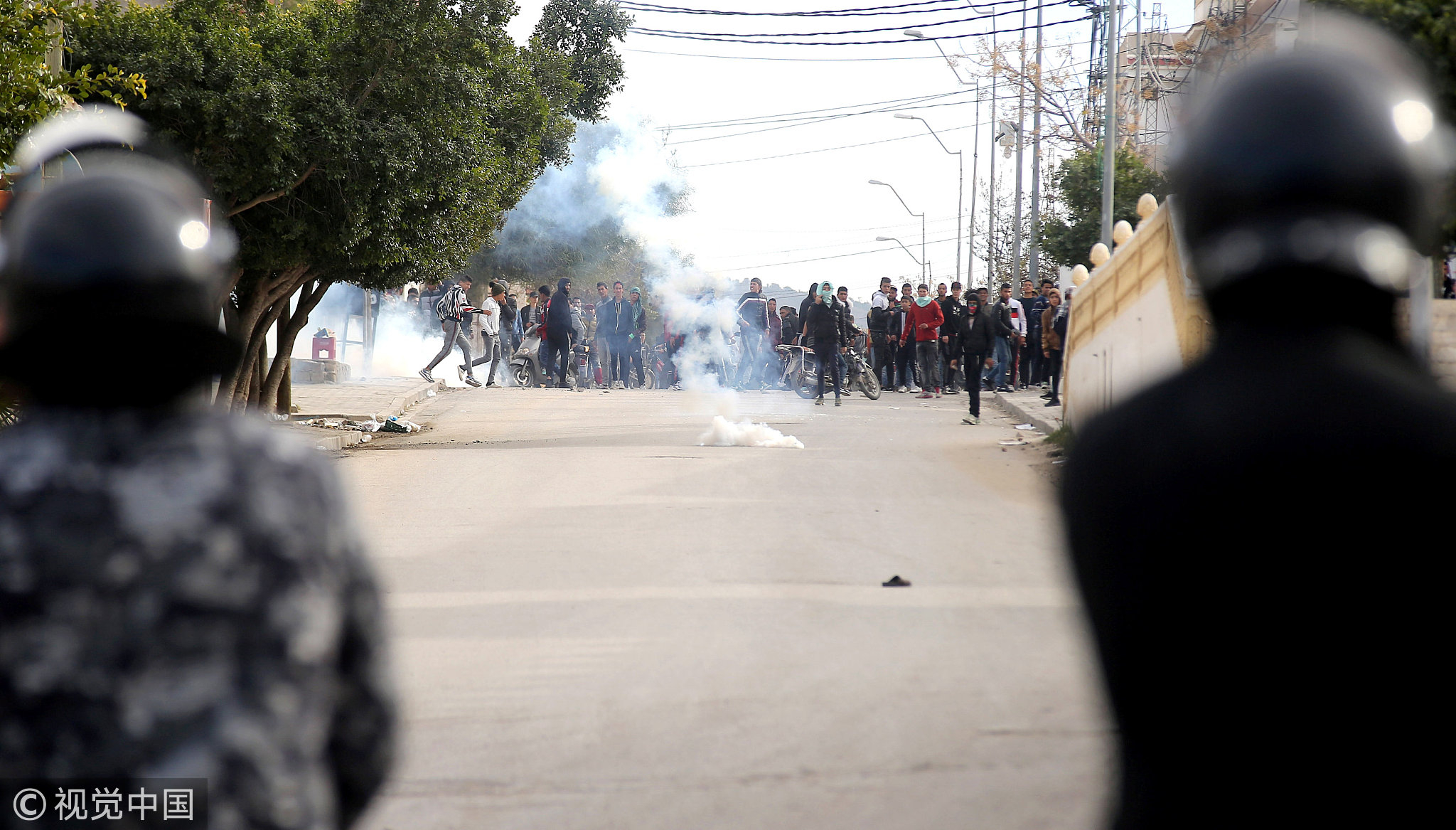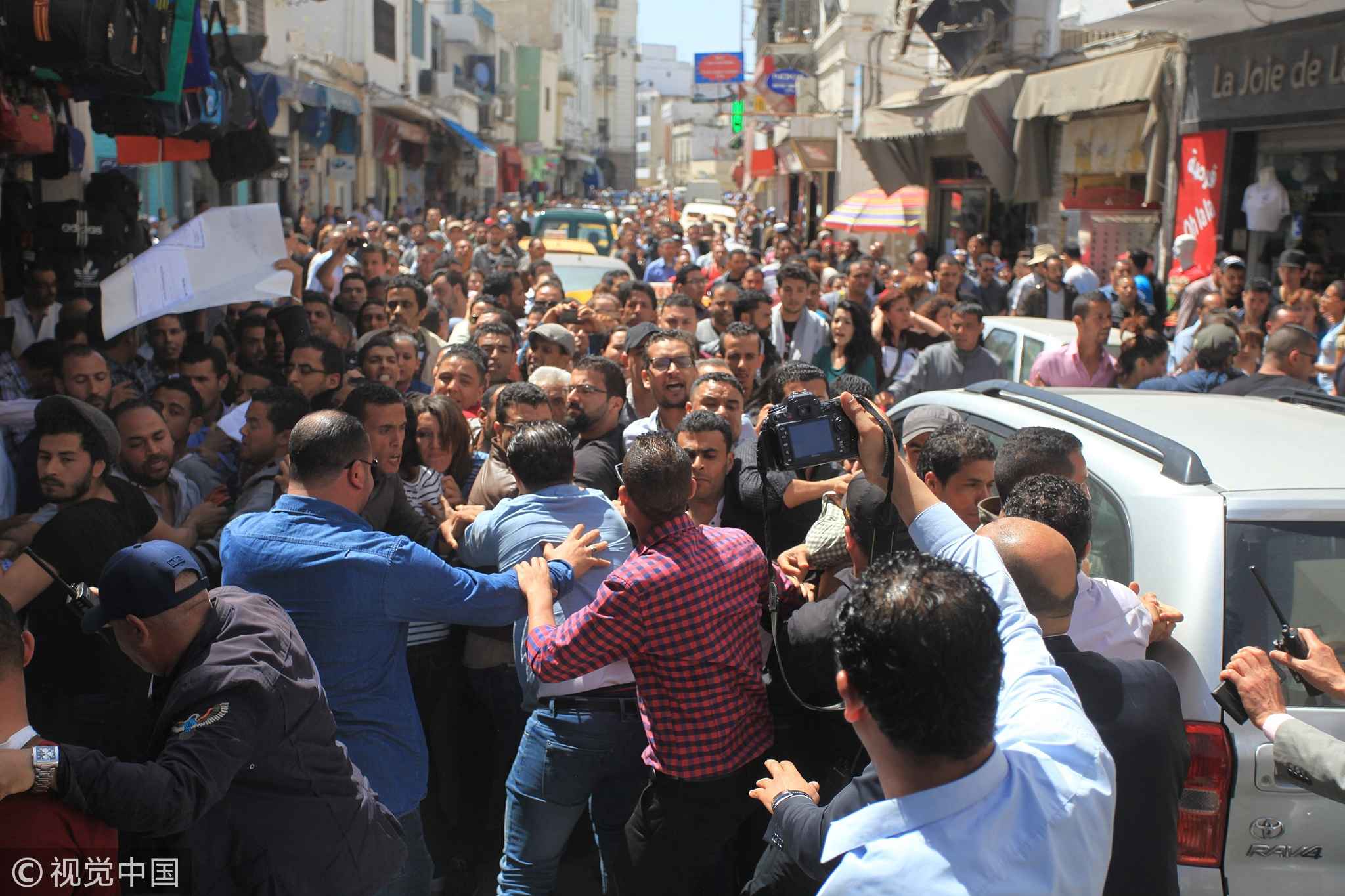
World
12:31, 27-Dec-2018
Tunisia protests spread, over a dozen arrested
Updated
11:38, 30-Dec-2018
CGTN

Tunisian protests, sparked by a journalist setting himself on fire over tough living conditions in the North African country, spread on Wednesday, with further clashes with security forces.
In the western city of Kasserine, police fired tear gas at stone-throwing youths in a second night of unrest, an AFP journalist said.
Thirteen people were arrested for "acts of destruction," interior ministry spokesman Hichem Fourati said.
Clashes also broke out in the eastern town of Jbeniana, where a policeman was injured, and in Tebourba in the north where at least five people were arrested, national security spokesman Walid Hkima said.
The death on Monday of 32-year-old journalist Abderrazk Zorgui, who set himself on fire in Kasserine, sparked an outpouring of anger in the city with protesters setting tires on fire and blocking roads.
It was reminiscent of the start of Arab Spring protests in 2010.

Tunisian security forces intervene against protesters demonstrating against unemployment in Tunis, Tunisia, April 20, 2016. /VCG Photo
Tunisian security forces intervene against protesters demonstrating against unemployment in Tunis, Tunisia, April 20, 2016. /VCG Photo
"For the sons of Kasserine who have no means of subsistence, today I start a revolution," Zorgui said in a video before his death.
In late 2010, the self-immolation of a Tunisian street vendor in protest at police harassment sparked a revolution in Tunisia and Arab Spring uprisings across the rest of the region the next year.
Kasserine was one of the first cities to rise up, in protests that saw police kill demonstrators.
The unrest quickly spread across the country and led to the overthrow of former president Zine al-Abidine Ben Ali.
Despite the country's democratic transition since then, authorities are still struggling to improve poor living conditions in the face of rampant inflation and persistent unemployment.
"There's a rupture between the political class and young people especially those living in insecurity in Tunisia's interior who see their future as uncertain," said the president of the Tunisian Forum for Economic and Social Rights, Messaoud Romdhani.
He said he expected the protests to spread to other regions because of "the lack of a real political will to address the real problems of Tunisians."
In recent months, political life in Tunisia has been paralyzed by power struggles ahead of presidential elections set for 2019.
Tunisia's national union of journalists called for a general strike on January 14 to mark the eight anniversary of the revolution.
(Top picture: Riot police clash with protesters during demonstrations in Kasserine, Tunisia, December 25, 2018. /VCG Photo)
8865km
Source(s): AFP

SITEMAP
Copyright © 2018 CGTN. Beijing ICP prepared NO.16065310-3
Copyright © 2018 CGTN. Beijing ICP prepared NO.16065310-3